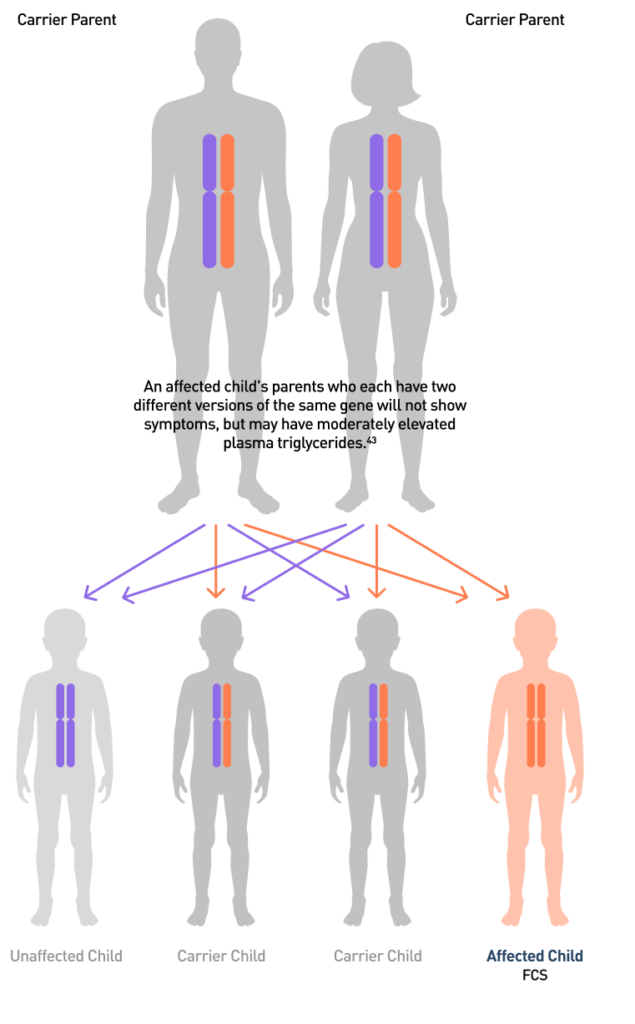How do genetics cause familial chylomicronemia syndrome (FCS)?
Gene variants prevent the proper removal of triglycerides from blood.38
FCS is a genetic disorder,12 meaning it is passed down from parents and present from birth. DNA contains genes, which are responsible for making all the different proteins in your body.41 Each protein has a specific job. Lipoprotein lipase (LPL) is a protein that helps break down triglycerides in the blood.12,13
Changes to DNA are called variants (also known as mutations). Some variants may cause disease, whereas other variants may not.34
When it comes to FCS, there are at least seven known gene variants (others may be discovered in the future) that affect the proper function of LPL.12,13 This leads to a buildup of triglycerides in the blood. That buildup may lead to serious health problems like acute pancreatitis.15
More on the genetics of FCS: How genes are inherited.
For someone to have FCS, they must inherit two disease-causing variants, one variant from each parent. A disease-causing variant is a harmful genetic change. People who have one variant in an FCS gene are called carriers. The way FCS is passed down from parents to a child is called autosomal recessive inheritance.12,35
FCS is inherited in an autosomal recessive pattern
Despite the name – familial chylomicronemia syndrome – affected individuals often have no family history of chylomicronemia or hypertriglyceridemia.15

The diagram above shows how FCS is inherited.12 When two parents are carriers, each child they have together has a35:

1 in 4 (or 25%) chance of having FCS. This means the child has two variant genes, one passed down from each parent.

1 in 2 (or 50%) chance of being a carrier of FCS. This means the child has only one variant gene and the child will not have FCS. They are more likely to have higher triglyceride levels.2

1 in 4 (or 25%) chance of being unaffected. This means the child does not have FCS and is not a carrier.
